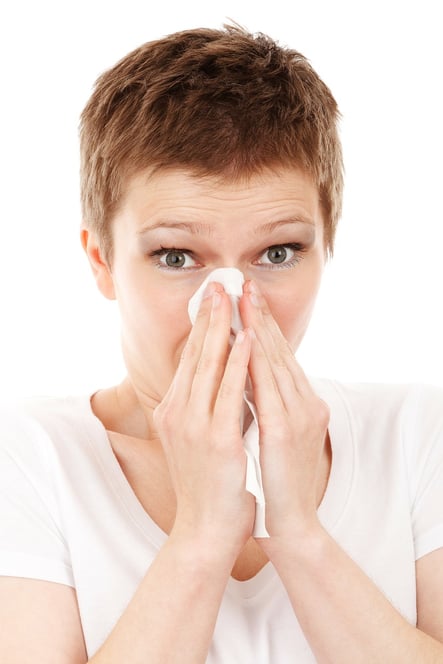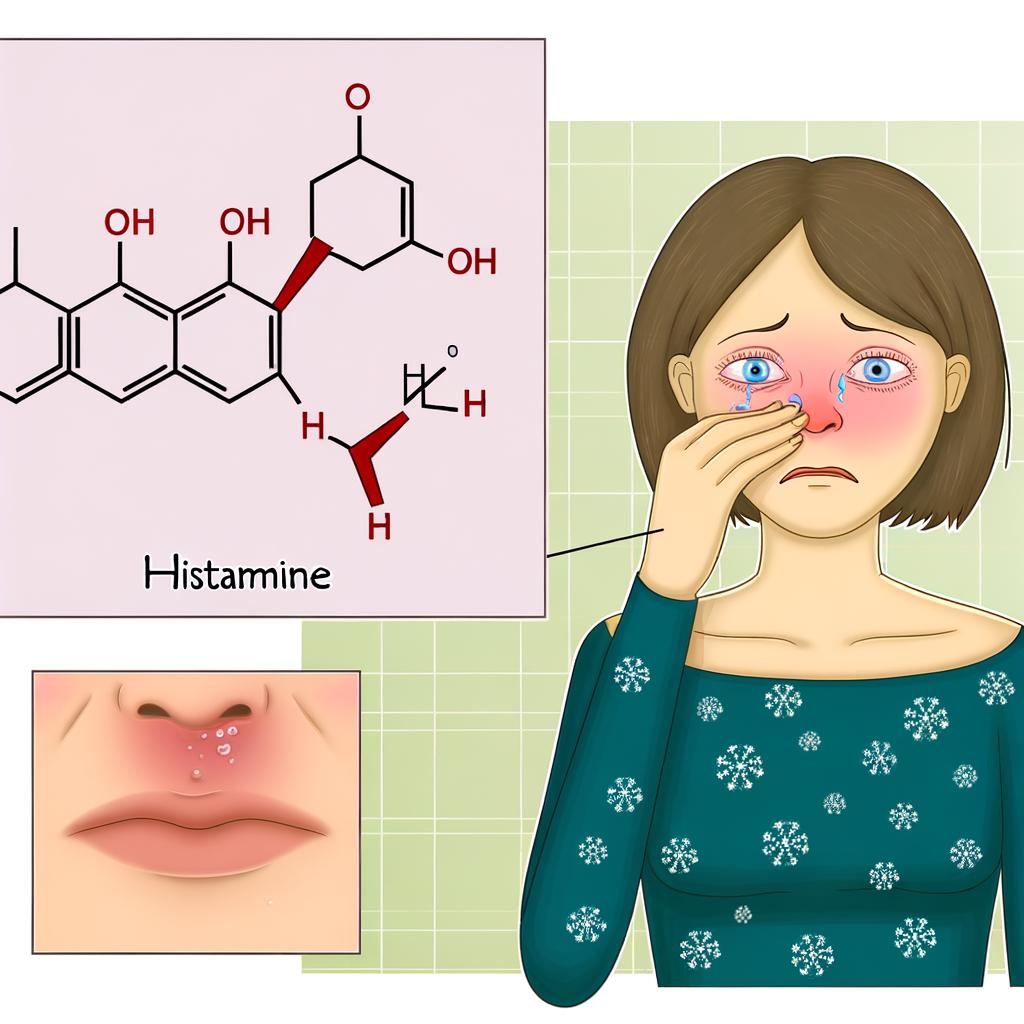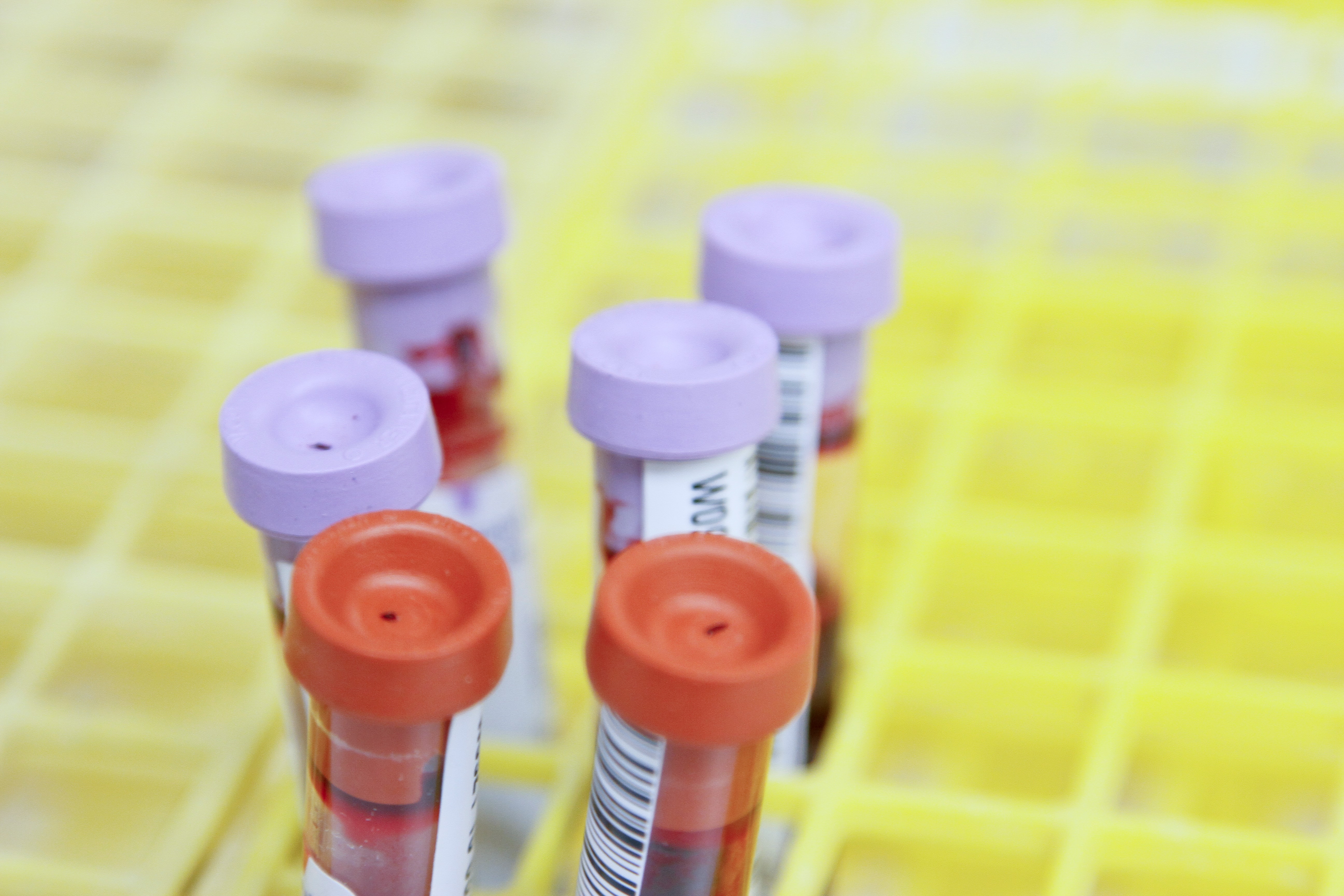There are some people who seem to experience constant health problems without really being able to pinpoint the reason behind them. In fact many people write these off as being "just one of those things." People say this about a lot of things and behind that statement is the idea that you can't do anything about it. I believe, when it comes to your health there is always something you can do.
If you live a healthy lifestyle, but really struggle with issues like allergies, headaches, fatigue, itchy skin and rashes or a constant runny nose, you could be at the mercy of a natural substance in your body called histamine. Histamine intolerance is a very under reported problem that currently affects around just 1% of the American population. This number would probably be much higher if more people were aware of histamine intolerance and the problems it creates.
What is Histamine?

Histamine is a chemical in the body that is mostly found in the eyes, skin and the stomach – therefore it is often thought of in association with issues such as rashes, water eyes, and indigestion. Histamine has many key functions, it is released by the body during an allergic reaction, it helps your body fight of foreign invaders (even those that are harmless), and it regulates production of stomach acid, and it acts as a neurotransmitter in the brain.
What are the symptoms of histamine intolerance?
There are a huge number of symptoms that have been linked to histamine intolerance. However a diagnosis based on any of these symptoms alone can be problematic as they are all symptoms that can be very easily linked to other conditions. To make it a little more clear, I broke the symptoms down into most common and less common (associated with histamine intolerance).
Most Common Symptoms
- Skin problems such as itchiness, rashes, and hives
- Runny nose and congestion
- Watery, red eyes
- Burning Mouth Syndrome
- Abdominal issues - upset stomach, reflux, gas, bloating and diarrhea
- Asthma
- Facial flushing
Less Common Symptoms
- Pre-menstrual cramps
- Coughing
- Palpitations or a racing heart
- Swelling of the ankles and feet
- Blood pressure issues - both high and low
- Insomnia
- Headaches and migraines
- Anxiety and panic-like symptoms
- Fatigue and lethargy, bad mood swings
Many people (who have this) suffer from at least one of these common symptoms, often more, on a regular basis (rather than just seasonally). However, a trip to the doctor is likely only to result in treatment for those individual symptoms rather than treating the bigger picture like histamine intolerance. For instance, when you have seasonal allergies they will typically recommend a histamine blocker. While this can be helpful short terms it does not really address the underlying issues (for those with histamine intolerance).
You may also be interested in:
What can you do for histamine intolerance?
One way to diagnose (and treat) histamine intolerance is to follow a low-histamine diet. This involves avoiding all foods that are high in histamine or cause the release of histamine. To get an idea if this is contributing to or causing your symptoms remove the following foods from your diet for a period of time (about 2 weeks):
- fermented food
- cheese
- spinach
- nuts
- tuna
- alcohol
- tomatoes
If following this diet reduceds or eliminates your symptoms, you likely have some form of histamine intolerance. Once identified you can use this information to manage your symptoms or identify other treatment options. The good news is that you do not have to follow this type of diet forever as we can enhance the elimination of histamine from your body with targeted treatments. Once you have reduced the excess histamine you can gradually begin to add foods containing histamine back into your diet, depending on the severity.
The Holistic Approach
We are a Phoenix based naturopathic doctor, and our approach to health problems are both holistic and focused on problem solving. We focus on helping you find answers to your health concerns. Why not contact us to arrange a free consult and let us discuss what we can do for your histamine reactions.

 "My weight was getting so out of control. I started their weigh loss diet program and lost 32 lbs! I have been able to reduce my blood pressure medicine, fit back in my clothes, have tons more energy... Now I am back to eating and my desire for foods has changes drastically. Saved my life!!!
"My weight was getting so out of control. I started their weigh loss diet program and lost 32 lbs! I have been able to reduce my blood pressure medicine, fit back in my clothes, have tons more energy... Now I am back to eating and my desire for foods has changes drastically. Saved my life!!!
 "Dr. Cline and Dr. Terranella have been amazing! For the first time we found doctors that actually listen. They care about how your feeling and try everything they can to get you back to a normal state. I am in love with these guys! If you want amazing care, see these guys."
"Dr. Cline and Dr. Terranella have been amazing! For the first time we found doctors that actually listen. They care about how your feeling and try everything they can to get you back to a normal state. I am in love with these guys! If you want amazing care, see these guys."









.jpg)







